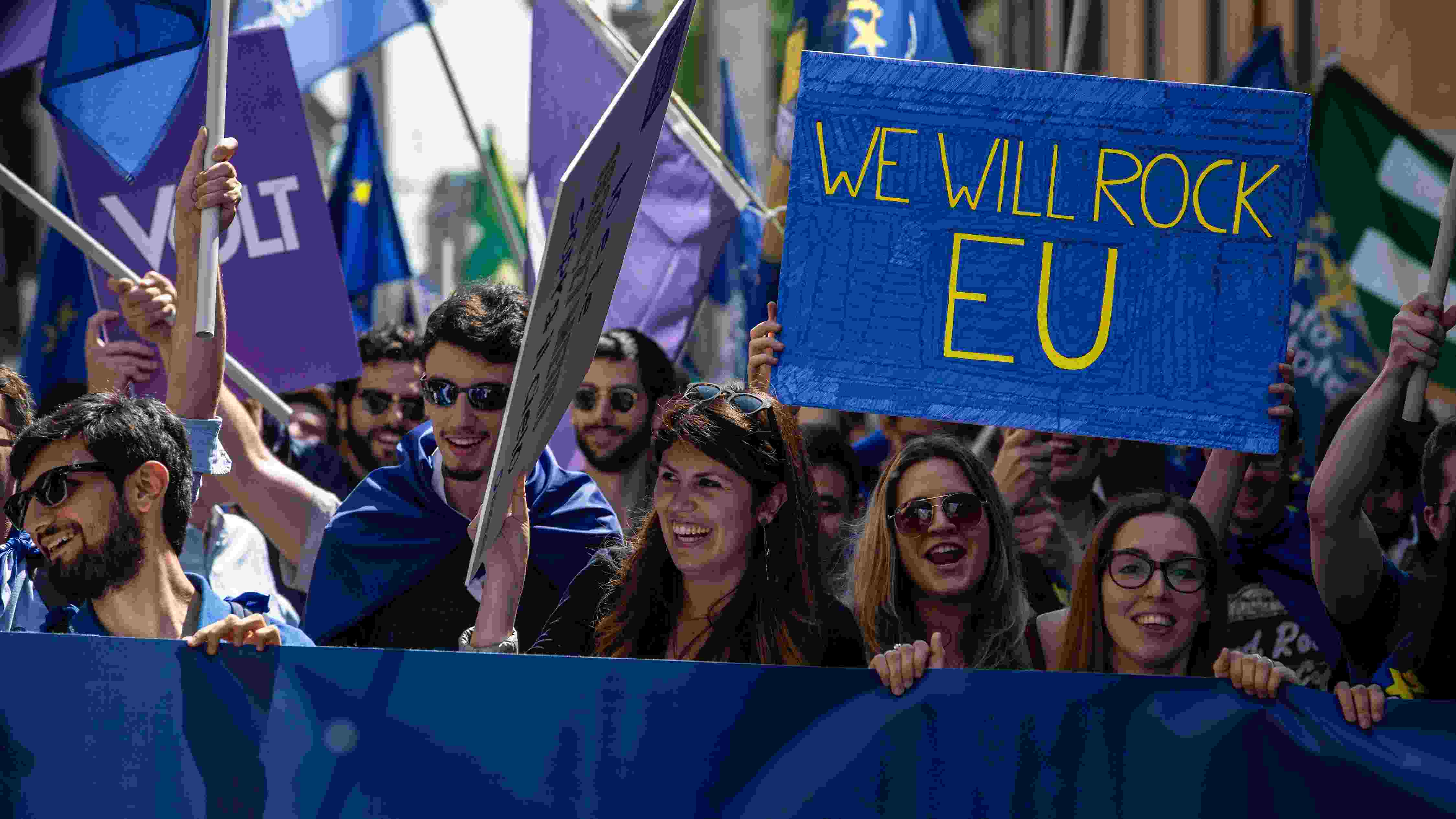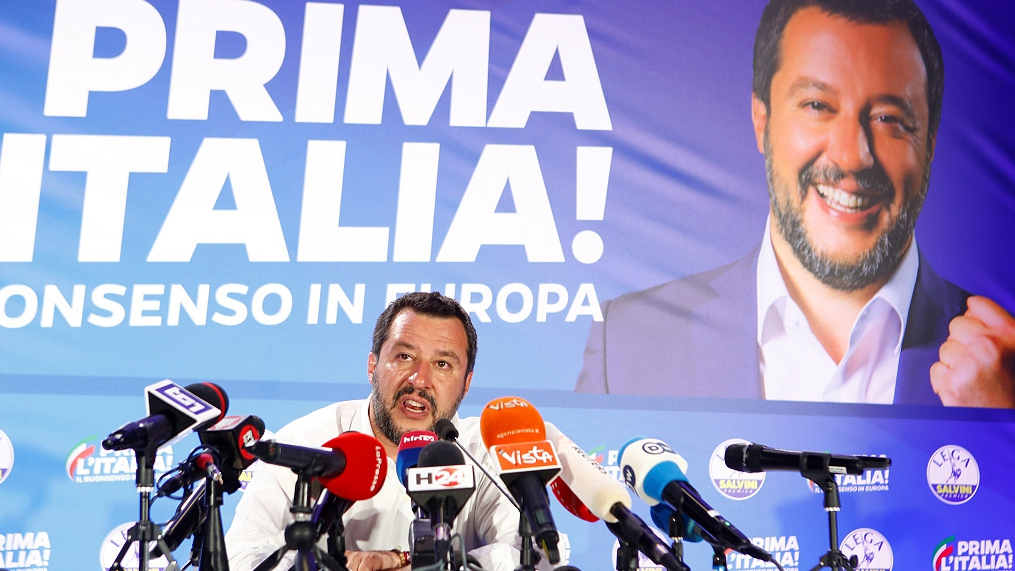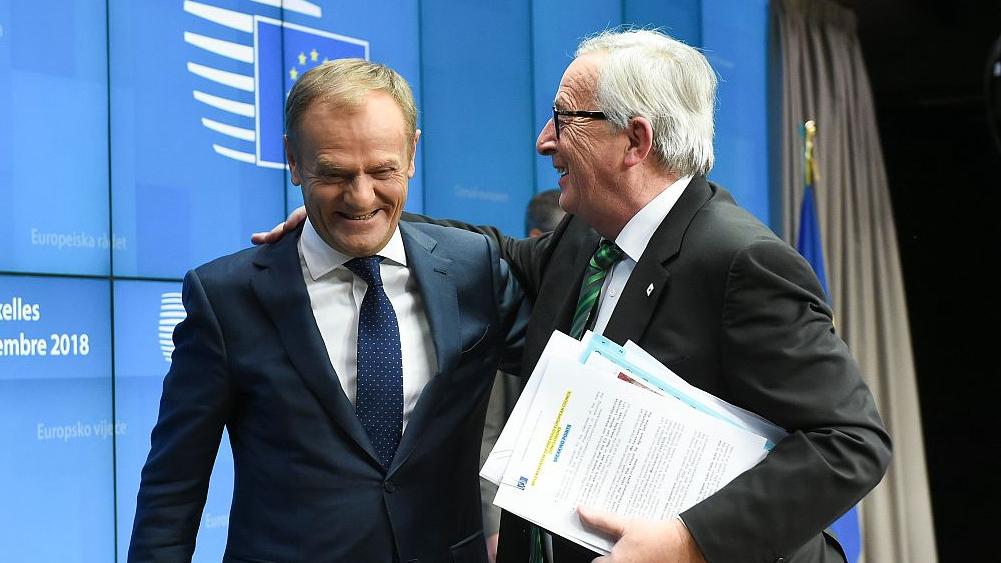
Opinion
10:16, 28-May-2019
The 'New European Renaissance' could revolutionize the EU
Andrew Korybko

Editor's note: Andrew Korybko is a Moscow-based American political analyst. The article reflects the author's opinion, and not necessarily the views of CGTN.
Pivotal European Parliament elections have saw a high turnout and resulted in gains for nationalists, greens and liberals at the expense of the established centrist power blocs.
Italy's populist Deputy Prime Minister and leader of the Lega ("League") party Matteo Salvini celebrated the rise of right-wing parties all across the continent after this weekend's European Parliamentary elections by boldly declaring that "A new Europe is born" and that "I am proud that the League is participating in this new European Renaissance." He believes that European politics have irreversibly changed as a result of the recent vote and that this will ultimately be to the betterment of its people.

Leader of Italy's far-right League party Matteo Salvini speaks during his European Parliament election night event in Milan, Italy, May 27, 2019. /VCG Photo
Leader of Italy's far-right League party Matteo Salvini speaks during his European Parliament election night event in Milan, Italy, May 27, 2019. /VCG Photo
In Salvini's view and that of his many allies across the continent, the previous EU model was too liberal in both the socio-economic and political senses, yet somewhat counterintuitively also too centralizing. The catalyst for change seems to have been the 2015 migrant crisis that crashed into the bloc and provoked very polarizing reactions that ultimately led to the electoral rise of the right, which is now poised to revolutionize European politics.
Salvini and the larger forces that he represents strongly support the restoration of national sovereignty within the EU, which is more than just a slogan since it carries with it very profound implications if implemented into practice. The centralizing tendency to turn the EU into a "federation of states" might eventually be reversed and the bloc could become a "collection of nation-states" instead, which would in turn allow is members to more independently govern themselves without being accountable to unelected bureaucrats in Brussels, therefore enabling them to pass certain legislation that would otherwise be at odds with the organization's liberal principles.
For example, Poland's ruling party has been trying to reform the justice system but has come up against serious opposition from its EU partners, while Hungary famously built a fence along the Serbian border in order to keep out irregular migrants. Both countries also refuse to accept mandatory refugee quotas, which has gotten them in trouble with the continent's central authorities.

European Commission President Jean Claude Juncker (R) and European Council President Donald Tusk after a press conference in Brussels, December 13, 2018. /VCG Photo
European Commission President Jean Claude Juncker (R) and European Council President Donald Tusk after a press conference in Brussels, December 13, 2018. /VCG Photo
The "new European renaissance" that Salvini envisions would grant those countries and every other one the right to govern themselves however they see fit so long as they collectively succeed in decentralizing the EU in order to legally make this possible. The interconnected focus on sovereignty, social issues, and national security could also inspire a powerful reaffirmation of European identity, which whether wittingly or not might play into the so-called "Clash of Civilizations" theory.
Proof of this observation can be seen in the right-wing leader's resistance to Turkey's possible membership in the bloc, which speaks to his desire to keep the EU culturally European. That said, while most of his continental allies support this position, they're divided over relations with China and Russia. The Central and Eastern European countries are much friendlier to China but are hostile towards Russia, while Salvini is critical of Italy's recent inclusion in the Belt & Road Initiative but wants to see an EU rapprochement with Russia.
Another interesting facet to figure into the evolving strategic equation is former White House chief strategist and Breitbart executive Steve Bannon's strong support for Europe's right-wing renaissance. While the power broker claims to be acting in a strictly independent capacity, he also said that he'll do whatever he can to help his former boss, President Trump, so the possibility arises that Bannon believes that this right-wing resurgence would be beneficial for American interests and that's why he's played a behind-the-scenes role in trying to bring it about.
There's certain logic to this too since the right-wing parties that did very well during the last European Parliamentary election are generally aligned with the U.S. If they're successful in pushing through their decentralization agenda, it might also lead to an improvement in transatlantic ties with the U.S. that have been noticeably strained since President Trump's election and the strong pushback that his socio-economic policies have received from Europe's establishment figures.
Looking forward, Salvini's optimistic vision of a "new European renaissance" might seem promising after this weekend's election results, but it'll take time for his right-wing allies to make tangible changes to EU policy, let alone implementing their entire agenda. There will almost certainly be impassioned resistance from the ruling liberal elites that have the most to lose from their right-wing's success, but either way, this new continental political dynamic will ultimately upend the status quo in Europe and possibly lead to unpredictable changes in the coming future.
(If you want to contribute and have specific expertise, please contact us at opinions@cgtn.com.)

SITEMAP
Copyright © 2018 CGTN. Beijing ICP prepared NO.16065310-3
Copyright © 2018 CGTN. Beijing ICP prepared NO.16065310-3